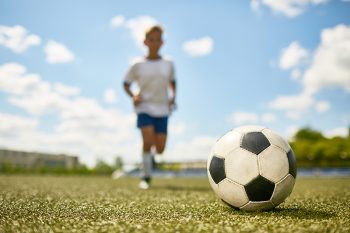Home /
Adverse Childhood Experiences (ACE’s) and Community Sports: Building Resilience

Adverse childhood experiences (ACE’s) are potentially traumatic events that occur in childhood from ages 0-17 years. Such experiences could include, but are not limited to:
- Witnessing violence in the home or in the community
- Experiencing violence, abuse, or neglect
- Having a family member attempt or die by suicide
Moreover, the child’s environment can either undermine or enhance the child’s sense of safety, stability, and bonding which can potentially alter brain development and affect the ways in which the body responds to stress (Bennett, 2022, p. 77). When children experience growing up in a household with substance use, mental health, instability due to parental separation, or not having enough food to eat can impact their physical, mental, and emotional health not only in childhood but throughout adolescents and adulthood (CDC, 2023). ACE’s have been connected to higher probabilities of chronic health problems, mental illness, and substance use in adulthood which can negatively impact education, job opportunities, and overall life satisfaction (CDC, 2023).
However, ACE’s can be reduced by raising awareness and promoting outreach resources for those youth and communities impacted. There are many approaches that could help reduce ACE’s impact on overall health. For this article’s purpose we will only focus on the impact connecting youth to trusted adults and activities can improve their physical, mental, and emotional health. Physical exercise has been linked to improved memory and learning, increased alertness, concentration, and energy (Tocino-Smith & Madeson, 2021). Additionally, exercise has been found to:
- Decrease stress
- Decrease social anxiety
- Improved processing of emotions
- Prevention of neurological conditions
- Euphoria (short-term)
- Increased energy, focus and attention,
- Hindrance to the aging process
- Improved memory
- Improved blood circulation
- Decreased “brain fog”
(Tocino-Smith & Madeson, 2021).
So how can we help bring all these benefits to youth that have experienced or still experience ACE’s?
Studies have shown that being involved in an organized sport can aid in developing skills that are needed to moderate and adapt to stress throughout life and help establish positive health behaviors and positive self-images. Yes, researchers also considered whether other after-school activities had the same resiliency effects. They found that participation in other school-based activities (such as band, chorus, and drama club) was not associated with lower odds of mental health issues later in life (Easterlin et al., 2019, para. 21). Team sports participation during adolescence was associated with considerably lower odds of having ever received a diagnosis of depression or anxiety (Easterlin et al., 2019, para. 25). When parents are choosing sports make sure that the coach fosters a prosocial (positive) reinforcement culture that serves the team with care, compassion, and role models through sports. Be sure to watch for antisocial (negative) modeling which could impact underling mood disorders or previous trauma and could be seen through actions that are harmful or lack of considerations for others wellbeing. Such as, yelling, violence, and prompt others to engage in unhealthy behaviors.
Overall, being a part of community sports in a prosocial environment can help children that have experienced ACE’s with:
- Developing physical skills
- Getting exercise
- Making friends
- Learning teamwork
- Learning sportsmanship
- Improve self-esteem
- Improved self-efficacy
- Critical thinking skills
- Social supports
- Improved emotional regulation
- Lower levels of depression
- Lower levels of loneliness
(Corrales, 2023).
~Sometimes out of our greatest failures we often find our greatest strengths and successes.
